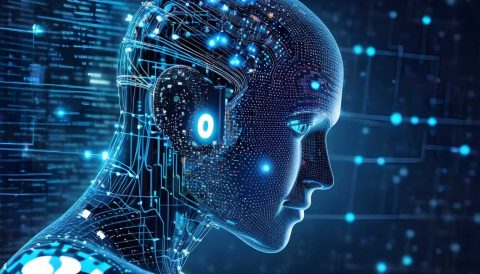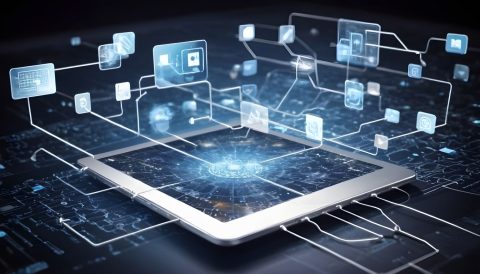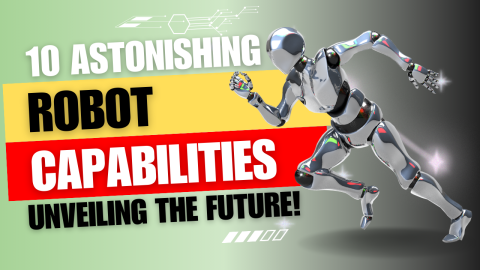In today’s digitally driven world, the example of digital intelligence, encompassing the utilization of artificial intelligence (AI) across various facets of our lives, has gained remarkable prominence. From healthcare to finance, from education to entertainment, AI is fundamentally reshaping how we navigate and engage with the world around us. Let’s explore some noteworthy instances illustrating how AI seamlessly intertwines with our daily routines.
Example of digital intelligence:
Explore the remarkable impact of AI through tangible examples of digital intelligence. From healthcare advancements to smart transportation systems, AI is revolutionizing how we live, work, and interact with technology. Witness the tangible benefits of AI as it transforms our everyday lives.
Healthcare
In healthcare, AI plays a pivotal role in revolutionizing diagnosis and treatment. Through advanced algorithms and machine learning techniques, AI can analyze vast amounts of medical data to assist doctors in accurately diagnosing diseases and recommending appropriate treatment plans. Additionally, AI enables personalized medicine by tailoring treatments to individual patients based on their genetic makeup and medical history.
Transportation
The transportation sector has seen a significant transformation with the advent of AI. Autonomous vehicles, equipped with sophisticated sensors and AI algorithms, are poised to revolutionize the way we commute. These self-driving cars promise safer roads, reduced congestion, and increased mobility for individuals with disabilities. Moreover, AI-powered traffic management systems optimize traffic flow, minimizing delays and improving overall efficiency.
Communication
AI has bridged language barriers with its advanced language translation capabilities. Whether it’s translating text, speech, or even sign language, AI-powered translation tools facilitate seamless communication across diverse linguistic backgrounds. Virtual assistants like Siri, Alexa, and Google Assistant have also become integral parts of our daily lives, helping us with tasks ranging from setting reminders to answering queries.
Entertainment
In the realm of entertainment, AI algorithms are reshaping the way content is consumed and curated. Streaming platforms leverage AI to analyze user preferences and behavior, offering personalized recommendations for movies, music, and TV shows. Moreover, AI is transforming the gaming industry by creating immersive gaming experiences, generating realistic graphics, and enhancing gameplay mechanics.
Finance
AI is revolutionizing the finance industry by bolstering fraud detection mechanisms and optimizing financial planning strategies. Advanced AI algorithms can detect fraudulent activities in real-time by analyzing patterns and anomalies in financial transactions. Furthermore, AI-powered financial planning tools offer personalized recommendations for investments, savings, and budgeting, empowering individuals to make informed financial decisions.
Education
In education, AI is driving innovation through adaptive learning platforms and virtual classrooms. Adaptive learning systems tailor educational content and pace to suit individual learning styles and abilities, fostering personalized learning experiences. Virtual classrooms equipped with AI-powered tools facilitate remote learning, enabling access to quality education irrespective of geographical barriers.
Agriculture
AI technologies are revolutionizing agriculture by optimizing crop management practices and increasing yields. Through satellite imagery and IoT sensors, AI-powered systems monitor crop health, soil moisture levels, and weather patterns, enabling farmers to make data-driven decisions. Precision farming techniques, guided by AI algorithms, enhance resource efficiency and sustainability in agriculture.
Retail
In the retail sector, AI is enhancing the shopping experience through personalized recommendations and efficient inventory management. AI algorithms analyze customer data to offer personalized product recommendations, leading to increased sales and customer satisfaction. Additionally, AI-driven inventory management systems optimize stock levels, reducing instances of overstocking or stockouts.
Manufacturing
AI is transforming the manufacturing industry by streamlining operations and improving productivity. Predictive maintenance systems, powered by AI algorithms, anticipate equipment failures before they occur, minimizing downtime and maintenance costs. Furthermore, AI-enabled quality control processes ensure consistency and accuracy in manufacturing operations, resulting in higher product quality.
Smart Homes
AI-driven smart home devices are making homes more efficient, comfortable, and secure. Home automation systems controlled by AI assistants automate various household tasks, such as adjusting thermostats, lighting, and security systems, based on user preferences and schedules. Moreover, AI algorithms optimize energy usage, reducing utility costs and environmental impact.
FAQ:
1- What is the best example of intelligence?
The best example of intelligence often varies depending on context, but generally, human intelligence is considered the pinnacle, encompassing complex cognitive abilities such as reasoning, problem-solving, and creativity.
2- What are the examples of artificial intelligence?
Examples of artificial intelligence include virtual assistants like Siri and Alexa, self-driving cars, language translation tools, recommendation systems on streaming platforms, and facial recognition technology.
3- What is an example of an intelligent system?
An example of an intelligent system is IBM’s Watson, a cognitive computing system capable of understanding and analyzing vast amounts of data to provide insights and make informed decisions across various domains.
4- What is an example of super AI?
An example of super AI, or artificial general intelligence (AGI), is a hypothetical AI system with intellectual capabilities surpassing those of humans across all domains. Currently, super AI remains a concept in science fiction and theoretical research.






